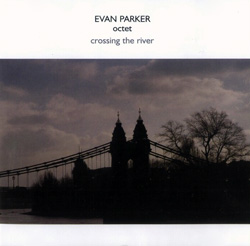
Out of Stock
Quantity in Basket: None
Log In to use our Wish List
Shipping Weight: 4.00 units
Sample The Album:
Neil Metcalfe-flute
John Rangecroft-clarinet
Evan Parker-tenor saxophone
Philipp Wachsmann-violing
Marcio Mattos-cello
John Edwards-bass
John Russell-guitar
Agusti Fernandez-piano
Click an artist name above to see in-stock items for that artist.
UPC: 503243060221
Label: psi
Catalog ID: 06.02
Squidco Product Code: 6032
Format: CD
Condition: New
Released: 2006
Country: Great Britain
Packaging: Jewel Tray
Recorded at Gateway Studios, in London, England, on May 2nd, 2005, by Steve Lowe.
Artist Biographies
• Show Bio for Neil Metcalfe Neil Metcalfe is a UK flutist who has been a member of groups Evan Parker Octet, Garage, London Improvisers Orchestra, Paul Rogers Freedom Orchestra, The Dedication Orchestra, The Intuitive Art Ensemble, The Runcible Quintet, Transatlantic Art Ensemble, Trio F O, and Unlaunched Orchestra. ^ Hide Bio for Neil Metcalfe • Show Bio for Evan Parker "Evan Parker was born in Bristol in 1944 and began to play the saxophone at the age of 14. Initially he played alto and was an admirer of Paul Desmond; by 1960 he had switched to tenor and soprano, following the example of John Coltrane, a major influence who, he would later say, determined "my choice of everything". In 1962 he went to Birmingham University to study botany but a trip to New York, where he heard the Cecil Taylor trio (with Jimmy Lyons and Sunny Murray), prompted a change of mind. What he heard was "music of a strength and intensity to mark me for life ... l came back with my academic ambitions in tatters and a desperate dream of a life playing that kind of music - 'free jazz' they called it then." Parker stayed in Birmingham for a time, often playing with pianist Howard Riley. In 1966 he moved to London, became a frequent visitor to the Little Theatre Club, centre of the city's emerging free jazz scene, and was soon invited by drummer John Stevens to join the innovative Spontaneous Music Ensemble which was experimenting with new kinds of group improvisation. Parker's first issued recording was SME's 1968 Karyobin, with a line-up of Parker, Stevens, Derek Bailey, Dave Holland and Kenny Wheeler. Parker remained in SME through various fluctuating line-ups - at one point it comprised a duo of Stevens and himself - but the late 1960s also saw him involved in a number of other fruitful associations. He began a long-standing partnership with guitarist Bailey, with whom he formed the Music Improvisation Company and, in 1970, co-founded Incus Records. (Tony Oxley, in whose sextet Parker was then playing, was a third co-founder; Parker left Incus in the mid-1980s.) Another important connection was with the bassist Peter Kowald who introduced Parker to the German free jazz scene. This led to him playing on Peter Brötzmann's 1968 Machine Gun, Manfred Schoof's 1969 European Echoes and, in 1970, joining pianist Alex von Schlippenbach and percussionist Paul Lovens in the former's trio, of which he is still a member: their recordings include Pakistani Pomade, Three Nails Left, Detto Fra Di Noi, Elf Bagatellen and Physics. Parker pursued other European links, too, playing in the Pierre Favre Quartet (with Kowald and Swiss pianist Irene Schweizer) and in the Dutch Instant Composers Pool of Misha Mengelberg and Han Bennink. The different approaches to free jazz he encountered proved both a challenging and a rewarding experience. He later recalled that the German musicians favoured a "robust, energy-based thing, not to do with delicacy or detailed listening but to do with a kind of spirit-raising, a shamanistic intensity. And l had to find a way of surviving in the heat of that atmosphere ... But after a while those contexts became more interchangeable and more people were involved in the interactions, so all kinds of hybrid musics came out, all kinds of combinations of styles." A vital catalyst for these interactions were the large ensembles in which Parker participated in the 1970s: Schlippenbach's Globe Unity Orchestra, Chris McGregor's Brotherhood of Breath, Barry Guy's London Jazz Composers Orchestra (LJCO) and occasional big bands led by Kenny Wheeler. In the late 70s Parker also worked for a time in Wheeler's small group, recording Around Six and, in 1980, he formed his own trio with Guy and LJCO percussionist Paul Lytton (with whom he had already been working in a duo for nearly a decade). This group, together with the Schlippenbach trio, remains one of Parker's top musical priorities: their recordings include Tracks, Atlanta, Imaginary Values, Breaths and Heartbeats, The Redwood Sessions and At the Vortex. In 1980, Parker directed an Improvisers Symposium in Pisa and, in 1981, he organised a special project at London's Actual Festival. By the end of the 1980s he had played in most European countries and had made various tours to the USA, Canada, Australia, New Zealand and Japan. ln 1990, following the death of Chris McGregor, he was instrumental in organising various tributes to the pianist and his fellow Blue Notes; these included two discs by the Dedication Orchestra, Spirits Rejoice and lxesa. Though he has worked extensively in both large and small ensembles, Parker is perhaps best known for his solo soprano saxophone music, a singular body of work that in recent years has centred around his continuing exploration of techniques such as circular breathing, split tonguing, overblowing, multiphonics and cross-pattern fingering. These are technical devices, yet Parker's use of them is, he says, less analytical than intuitive; he has likened performing his solo work to entering a kind of trance-state. The resulting music is certainly hypnotic, an uninterrupted flow of snaky, densely-textured sound that Parker has described as "the illusion of polyphony". Many listeners have indeed found it hard to credit that one man can create such intricate, complex music in real time. Parker's first solo recordings, made in 1974, were reissued on the Saxophone Solos CD in 1995; more recent examples are Conic Sections and Process and Reality, on the latter of which he does, for the first time, experiment with multi-tracking. Heard alone on stage, few would disagree with writer Steve Lake that "There is, still, nothing else in music - jazz or otherwise - that remotely resembles an Evan Parker solo concert." While free improvisation has been Parker's main area of activity over the last three decades, he has also found time for other musical pursuits: he has played in 'popular' contexts with Annette Peacock, Scott Walker and the Charlie Watts big band; he has performed notated pieces by Gavin Bryars, Michael Nyman and Frederic Rzewski; he has written knowledgeably about various ethnic musics in Resonance magazine. A relatively new field of interest for Parker is improvising with live electronics, a dialogue he first documented on the 1990 Hall of Mirrors CD with Walter Prati. Later experiments with electronics in the context of larger ensembles have included the Synergetics - Phonomanie III project at Ullrichsberg in 1993 and concerts by the new EP2 (Evan Parker Electronic Project) in Berlin, Nancy and at the 1995 Stockholm Electronic Music Festival where Parker's regular trio improvised with real-time electronics processed by Prati, Marco Vecchi and Phillip Wachsmann. "Each of the acoustic instrumentalists has an electronic 'shadow' who tracks him and feeds a modified version of his output back to the real-time flow of the music." The late 80s and 90s brought Parker the chance to play with some of his early heroes. He worked with Cecil Taylor in small and large groups, played with Coltrane percussionist Rashied Ali, recorded with Paul Bley: he also played a solo set as support to Ornette Coleman when Skies of America received its UK premiere in 1988. The same period found Parker renewing his acquaintance with American colleagues such as Anthony Braxton, Steve Lacy and George Lewis, with all of whom he had played in the 1970s (often in the context of London's Company festivals). His 1993 duo concert with Braxton moved John Fordham in The Guardian to raptures over "saxophone improvisation of an intensity, virtuosity, drama and balance to tax the memory for comparison". Parker's 50th birthday in 1994 brought celebratory concerts in several cities, including London, New York and Chicago. The London performance, featuring the Parker and Schlippenbach trios, was issued on a highly-acclaimed two-CD set, while participants at the American concerts included various old friends as well as more recent collaborators in Borah Bergman and Joe Lovano. The NYC radio station WKCR marked the occasion by playing five days of Parker recordings. 1994 also saw the publication of the Evan Parker Discography, compiled by ltalian writer Francesco Martinelli, plus chapters on Parker in books on contemporary musics by John Corbett and Graham Lock. Parker's future plans involve exploring further possibilities in electronics and the development of his solo music. They also depend to a large degree on continuity of the trios, of the large ensembles, of his more occasional yet still long-standing associations with that pool of musicians to whose work he remains attracted. This attraction, he explained to Coda's Laurence Svirchev, is attributable to "the personal quality of an individual voice". The players to whom he is drawn "have a language which is coherent, that is, you know who the participants are. At the same time, their language is flexible enough that they can make sense of playing with each other ... l like people who can do that, who have an intensity of purpose." " ^ Hide Bio for Evan Parker • Show Bio for Philipp Wachsmann "Philipp Wachsmann. Born Uganda, 1944; violin, viola and electronics. In the CD booklet to Gushwachs, John Corbett notes that Phillip Wachsmann came to free improvisation from a predominantly classical background, particularly via the contemporary experiments of "indeterminacy, graphic and prose-based scores, conceptualism and electroacoustics, listening to Webern, Partch, Ives, Berio and Varèse, reading 'Die Reihe' and interrogating the rhythmic, harmonic and melodic preoccupations of Western art music. Starting in 1969, Wachsmann was a member of Yggdrasil, an ensemble performing works by Cage, Cardew, Feldman, Ashley and others and in this group he used contact mikes on the violin and made his own electronic instruments, ring modulators and routing devices. Ironically, his studies with Nadia Boulanger in Paris (1969-1970) pushed him hard in the direction of free music. He recalls: 'Despite her neoclassical orientation, her insistence that composition is about the imagination of performance and its realisation, the live moment, and her stunning ability to make this happen was a powerful influence on me, steering towards 'performance' and therefore 'improvisation'.'" Wachsmann moved from Yggdrasil to Chamberpot - recorded on Bead 2 - and shortly thereafter appeared on Tony Oxley's influential February papers, forward looking in the virtual 'industrial' orientation of some of the tracks, years before this became an accepted genre; the two musicians have continued to work together, in various groupings but notably in the percussionist's Celebration Orchestra. Philipp Wachsmann has also performed and/or recorded with: Derek Bailey's Company, e.g. on the recording Epiphanies; Georg Graewe; Barry Guy; Iskra 1903; King Übü Orchestrü; London Jazz Composers' Orchestra; Evan Parker, particularly as part of the Evan Parker Electronic Project; Quintet Moderne; Fred Van Hove's ML DD 4; Rüdiger Carl's COWWS (now CPWWS) Quintet; and Lines, with Martin Blume, Jim Denley, Axel Dörner and Marcio Mattos. He also plays as a solo musician. Phillip Wachsmann also administers Bead Records." ^ Hide Bio for Philipp Wachsmann • Show Bio for Marcio Mattos "Marcio Mattos was born Rio de Janeiro, 20th March 1946; double bass, 'cello. Studied acoustic guitar in early teens, switching to double bass and cello, mainly self-taught, after becoming interested in Jazz. Later entered the Villa-Lobos institute where he became involved in improvisation and electronic music. Since coming to Europe in 1970 has performed, recorded and broadcast both in Britain and abroad in groups including John Surman, Evan Parker, John Stevens, Keith Tippett, Derek Bailey's Company, Dewey Redman and Marylin Crispell amongst others. Has also worked with dance companies such as Ballet Rambert and The Extemporary Dance Theatre Company, and in electro-acoustic music groups such as the West Square Electronic Music Ensemble. A long- standing member of the Eddie Prevost Quartet and various Elton Dean groups. Other current British projects include the "Bardo State Orchestra", Chris Burn's Ensemble, "Wooden Taps" with Maggie Nicols, "Embers" with John Butcher and others, "Lines" with Phil Wachsmann/Jim Denley and others, and "Full Monte" with Chris Biscoe, Brian Godding and Tony Marsh . International projects working in Europe have included Georg Graewe's Grubenklang Orchestra, Stefano Maltese's "Open Music Ensemble", Tony Oxley's Celebration Orchestra, "AXON"- trio with Phil Minton and Martin Blume , bass/cello and shakuhachi duo with Shiku Yano, and in Japan various groupings with Sabu Toyozumi and Keiko Midorikawa. Also trained as a Ceramic artist at Goldsmiths college and continues to make and exhibit work in clay." ^ Hide Bio for Marcio Mattos • Show Bio for John Edwards "After taking up the bass, around 1987, John Edwards co-formed The Pointy Birds who went on to win awards for their music for The Cholmondeleys and Featherstonehaughs dance troupes. The group appeared at festivals in Glasgow, Edinburgh, Moers, Leverkusen, Copenhagen. Around 1990, Edwards played his first gigs with London improvisers such as Roger Turner, Lol Coxhill, Maggie Nicols, Phil Minton. Between 1990 and 1995 Edwards was a member of three touring groups simultaneously: B-Shops For The Poor, The Honkies and GOD. During this period he also became an increasingly regular player on the London improvised music scene and performed his first solo gigs; he composed and performed music theatre with the bass and cello duo The Great Explorers, street-busked a lot and appeared at many more festivals in Germany, Estonia, France, Italy, Czech, etc. Since 1995 John Edwards has become a "mainstay" of the London scene, playing with just about everybody, an activity that has seen him clocking up between 150 and 200 gigs a year. He has become regular player with Evan Parker, in many groupings, and with Tony Bevan, Veryan Weston, and Elton Dean, often in collaboration with Mark Sanders on percussion. He has become a more frequent player on the European (and festival) scene, appearing at Taktlos, Ulrichsburg, Nickelsdorf, Budapest, New Zealand and in the USA. He continues to work on solo performances." ^ Hide Bio for John Edwards • Show Bio for John Russell "John Russell got his first guitar in 1965 while living in Kent and began to play in and around London from 1971 onwards. An early involvement with the emerging free improvisation scene (from 1972) followed, seeing him play in such places as The Little Theatre Club, Ronnie Scott's, The Institute of Contemporary Arts, The Musicians' Co-Op and the London Musicians' Collective. From 1974 his work extended into teaching, broadcasts (radio and television) and touring in the United Kingdom and, ever extensively, in other countries around the world . He has played with many of the world's leading improvisers and his work can be heard on over 50 CDs and albums. In 1981, he founded QUAQUA, a large bank of improvisers put together in different combinations for specific projects and, in 1991, he started MOPOMOSO which has become the UK's longest running concert series featuring mainly improvised music." ^ Hide Bio for John Russell • Show Bio for Agusti Fernandez "Agustí Fernández (Palma de Mallorca, 1954), with a perfectly based career and a well-deserved international reputation, is one of the Spanish musicians of major international projection and a world reference in the field of improvised music. Fernández has worked with famous musicians of the free improvisation scene like Peter Kowald, Derek Bailey, Butch Morris, Evan Parker, Barry Guy, Mats Gustafsson, Joel Ryan and Peter Evans a.m.o. He is a member of the Blue Shroud Band, Mats Gustafsson NU Ensemble and Barry Guy New Orquestra. Up to the current date he has published more than 80 CD's He has also worked with the recognised composer of contemporary music Héctor Parra, who composed in collaboration with the pianist FREC, a solo for expanded piano. FREC has been premiered at the Huddersfield Contemporary Music Festival in 2013 with the collaboration of the video artist Lucas Caraba. He has conducted various improvised music ensembles like Ad Libitum Ensemble (Varsaw), Free Art Ensemble (Barcelona), Ansambl Studio 6 (Lujbljana) Orquesta FOCO (Madrid), Entenguerengue (Jérez de la Frontera), Impromtu Ensemble (Valencia), etc. Along his professional life Agustí Fernández has received much recognition. His solo for piano "Mutza" presented in New York in 2007 was distinguished by the New York magazine AllAboutJazz as one of 10 best concerts from that year. The CD "Un llamp que no s'acaba mai" on PSI (Agustí Fernández, John Edwards and Mark Sanders) has been distinguished by Allaboutjazz as one of the best 10 cd's in 2009; the CD "Aurora" on Maya Recordings (Agustí Fernandez, Barry Guy and Ramón López) was selected by Cuadernos de Jazz magazine as the best CD in 2007, by the Jaç magazine as the best fourth disc of the history of the Catalan jazz and it was Disc d'émoi (February, 2007) for the French Jazz Magazine. The "Agustí Fernández Aurora Trio" received the second prize at the BMW Welt Jazz Award 2012 celebrated in Münich, Germany. In 2000 he received the Festival Altaveu Award, Sant Boi de Llobregat (Catalonia). In 2001 he received the FAD - Sebastià Guasch Award, Barcelona (Cataluña) with Andrés Corchero por el or the performance "A modo de esperanza". In 2011 Agustí Fernández was the main character of the documentary film "Los dedos huéspedes" by Lucas Caraba, which has been screened in several international festivals of documentary. In 2014 the Ad Libitum Festival (Warsaw) dedicated a monographic edition to celebrate Fernández's 60th Birthday. He's professor of improvised music at the Escuela Superior de Música de Catalunya (ESMUC). He's developing an important teaching activity in the field of improvised music and, among other, he has been teaching in IRCAM in Paris, the Estonian Academy of Music and Theatre de Tallin, the Royal Conservatory in The Hague (Holland), the Conservatory in Arhem (Holland), the Taller de Músicos in Gijón (Spain), the Taller de Músics in Barcelona (Spain) and the Conservatorio Superior de Música in Salamanca (Spain)." ^ Hide Bio for Agusti Fernandez
11/5/2024
Have a better biography or biography source? Please Contact Us so that we can update this biography.
11/5/2024
Have a better biography or biography source? Please Contact Us so that we can update this biography.
11/5/2024
Have a better biography or biography source? Please Contact Us so that we can update this biography.
11/5/2024
Have a better biography or biography source? Please Contact Us so that we can update this biography.
11/5/2024
Have a better biography or biography source? Please Contact Us so that we can update this biography.
11/5/2024
Have a better biography or biography source? Please Contact Us so that we can update this biography.
11/5/2024
Have a better biography or biography source? Please Contact Us so that we can update this biography.
Track Listing:
1. Octet 1 23:41
2. Quintet 10:25
3. Trio 1 3:00
4. Trio 2 5:45
5. Trio 3 6:40
6. Duo 7:05
7. Octet 2 19:18
8. Octet 3 0:40
EMANEM & psi
Improvised Music
Jazz
European Improv, Free Jazz & Related
Parker, Evan
May 2006
Recordings by or featuring Reed & Wind Players
Octet Recordings
Search for other titles on the label:
psi.


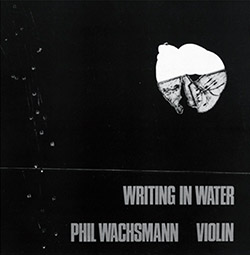
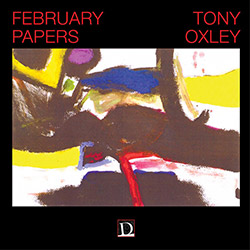
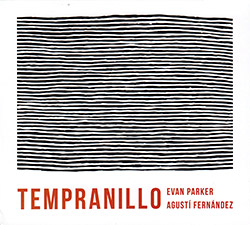



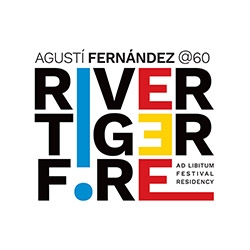

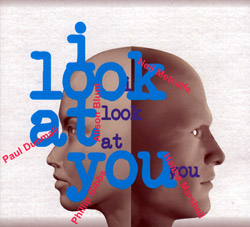

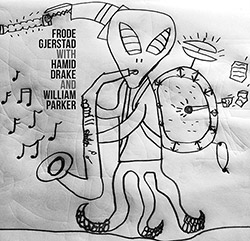


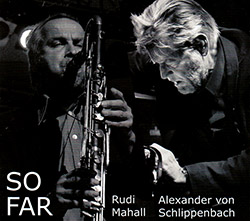


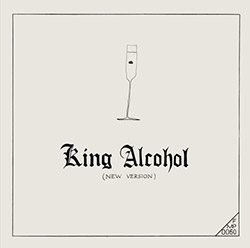




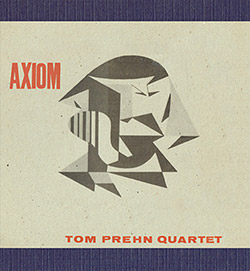









![Warren, Kenny (Warren / Hoffman / Ellman): Sweet World [VINYL]](https://www.teuthida.com/productImages/misc4/35451.jpg)


![Blake, Ran / Dave Knife Fabris: Live Amsterdam 2006, First Visit [CD + POSTCARDS]](https://www.teuthida.com/productImages/misc4/35275.jpg)
![Sanna, Claudio: Compositori Sardi Contemporanei II [2 CDs]](https://www.teuthida.com/productImages/misc4/35317.jpg)














![Musicworks Magazine: #149 Fall 2024 [MAGAZINE + CD]](https://www.teuthida.com/productImages/misc4/35470.jpg)

![Nevai, Nandor: <<The PRICE of FRONTIER>> Book 1: FULK [BOOK + 4 CDs]](https://www.teuthida.com/productImages/misc4/35464.jpg)
![Nevai, Nandor: <<The PRICE of FRONTIER>> Book 2: MARTIAL [BOOK + 4 CDs]](https://www.teuthida.com/productImages/misc4/35465.jpg)
![Nevai, Nandor: <<The PRICE of FRONTIER>> Book 3: JASSOM [BOOK + 4 CDs]](https://www.teuthida.com/productImages/misc4/35466.jpg)
![Nevai, Nandor: <<The PRICE of FRONTIER>> Book 4: HARD-WON [BOOK + 4 CDs]](https://www.teuthida.com/productImages/misc4/35467.jpg)



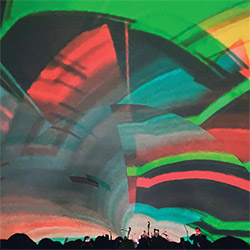
![Mazurek, Rob & Exploding Star Orchestra: Live at Adler Planetarium [VINYL]](https://www.teuthida.com/productImages/misc4/35233.jpg)
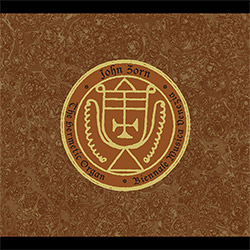
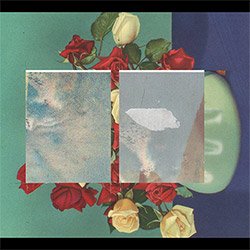
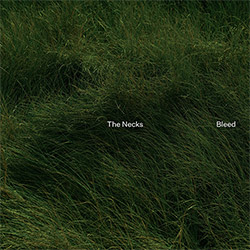
![Necks, The: Bleed [VINYL BLACK]](https://www.teuthida.com/productImages/misc4/35250.jpg)
![Necks, The: Bleed [VINYL GREEN + DOWNLOAD]](https://www.teuthida.com/productImages/misc4/35251.jpg)
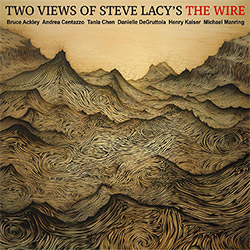

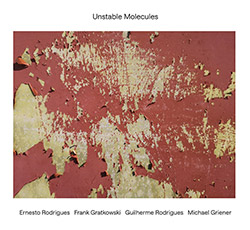

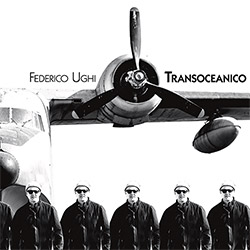
![Attias, Michael (Attias / Leibson / Pavolka / Ferber / Hoffman): Quartet Music Vol. I: LuMiSong [VINYL]](https://www.teuthida.com/productImages/misc4/34878.jpg)
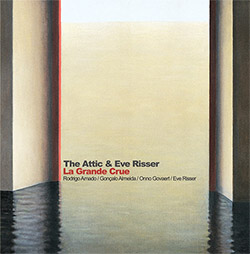
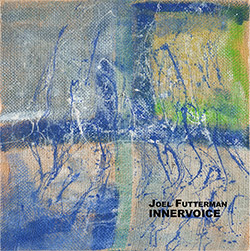



![DNS: Taking Big Bites Of The Khandas Three Cafes Deep [2 CDs]](https://www.teuthida.com/productImages/misc4/35334.jpg)




![Cleaver, Gerald: The Process [VINYL]](https://www.teuthida.com/productImages/misc4/34966.jpg)




![Alva Noto: HYbr:ID II [VINYL 2 LPs]](https://www.teuthida.com/productImages/misc4/35201.jpg)

![Baron, Derek / Luke Martin: Distinct and Concealed [CASSETTE + DOWNLOAD]](https://www.teuthida.com/productImages/misc4/35079.jpg)

![Lyle, Erica Dawn : Colonial Motels [CASSETTE + DOWNLOAD]](https://www.teuthida.com/productImages/misc4/35080.jpg)







![Alva Noto: HYbr:ID III [VINYL 2 LPs]](https://www.teuthida.com/productImages/misc4/35011.jpg)
![Kubisch, Christina / Trondheim Voices: Stromsanger 2022 For Six Voices And Electromagnetic Waves [VINYL]](https://www.teuthida.com/productImages/misc4/34628.jpg)
![Ristic, Manja / Joana Guerra / Veronica Cerrotta: Slani pejzazi [CASSETTE + DOWNLOAD]](https://www.teuthida.com/productImages/misc4/34928.jpg)
![Euro Herc: Segnali [CASSETTE + DOWNLOAD]](https://www.teuthida.com/productImages/misc4/34929.jpg)







![Zurria, Manuel: Fame di Vento [3 CDs]](https://www.teuthida.com/productImages/misc4/35167.jpg)

![Granberg, Magnus / Nattens Inbrott / Skogen: Holde Traume, Kehret Wieder! [2 CDs]](https://www.teuthida.com/productImages/misc4/35038.jpg)
![Frey, Jurg: Outermost Melodie [2 CDs]](https://www.teuthida.com/productImages/misc4/35039.jpg)

![Pavone, Jessica: Reverse Bloom [VINYL]](https://www.teuthida.com/productImages/misc4/34895.jpg)




![Modney (Modney / Wooley / Gentile / Roberts / Pluta / Symthe / ...): Ascending Primes [2 CDs]](https://www.teuthida.com/productImages/misc4/34852.jpg)






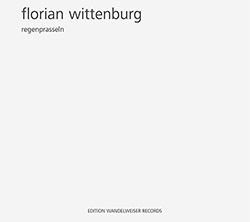

![Kirschner, Kenneth / Joseph Branciforte: From the Machine: Volume 1 [VINYL]](https://www.teuthida.com/productImages/misc4/30767.jpg)

![Elephant9 with Terje Rypdal: Catching Fire [VINYL 2 LPs]](https://www.teuthida.com/productImages/misc4/35355.jpg)
![Deerlady (Obomsawin, Mali / Magdalena Abrego): Greatest Hits [VINYL]](https://www.teuthida.com/productImages/misc4/34876.jpg)




![Haino, Keiji: Black Blues [2 CDs]](https://www.teuthida.com/productImages/misc4/35109.jpg)



![Surplus 1980: Illusion of Consistency [CD]](https://www.teuthida.com/productImages/misc4/35069.jpg)
![Staiano, Moe: Away Towards the Light [VINYL + DOWNLOAD]](https://www.teuthida.com/productImages/misc4/35037.jpg)




![Caveira (Gomes / Sousa / Abras / Ferrandini): Ficar Vivo [VINYL]](https://www.teuthida.com/productImages/misc4/34643.jpg)
![Gregg, J. J. / David Van Auken: Lunar Prairie [CD w/ DOWNLOAD]](https://www.teuthida.com/productImages/misc4/34611.jpg)

![Coultrain: Mundus [VINYL]](https://www.teuthida.com/productImages/misc4/32439.jpg)
![Mattin: Songbook #6 [VINYL]](https://www.teuthida.com/productImages/misc4/27317.jpg)
![Punkappella: Wake Up [7-inch VINYL]](https://www.teuthida.com/productImages/misc4/17519.jpg)
![Residents, The: WARNING: UNiNC.: Live And Experimental Recordings 1971-1972 [VINYL 2 LPs]](https://www.teuthida.com/productImages/misc4/31521.jpg)
![Coultrain: Phantasmagoria [VINYL]](https://www.teuthida.com/productImages/misc4/30142.jpg)
![Lennon, Sean Ono: Asterisms [VINYL]](https://www.teuthida.com/productImages/misc4/34517.jpg)

![Rotem Geffen: The Night Is The Night [VINYL]](https://www.teuthida.com/productImages/misc4/34631.jpg)
![Coley, Byron: Dating Tips for Touring Bands [VINYL]](https://www.teuthida.com/productImages/misc4/17906.jpg)

![Lost Kisses: My Life is Sad & Funny [DVD]](https://www.teuthida.com/productImages/misc4/lostKissesDVD.jpg)